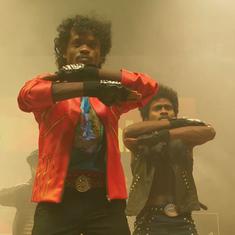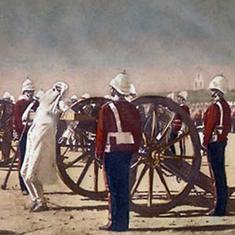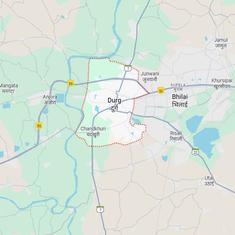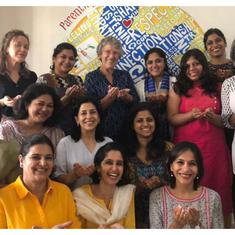She started with shot put but has qualified for the Tokyo Olympics as a discus thrower and wants to one day become a professional cricketer.
If her life had taken the normal route, Kamalpreet Kaur would have been married by now. But the 22-year-old from Kabarwala village in Punjab’s Sri Muktsar Sahib district overcame a reluctant mother, under-cooked chapatis at the hostel, amateur training methods, a fund crunch, and a Covid-19 lockdown to keep her Olympics dream alive.
On March 19, during the 24th National Federation Cup Senior Athletics Championships, she threw 65.06m to qualify for the Tokyo Games. Her only legal throw went past the Olympic qualification mark of 63.05m, along with bettering the nine-year-old national record of 64.76m set by Krishna Poonia.
A new national record and a ticket to the Tokyo Olympics for Kamalpreet Kaur in the Women's Discus Throw. She won the medal gold with an effort of 65.06m to break Krishna Poonia's previous NR of 64.76. The Olympic Qualification standard is 63.50m.
— The Field (@thefield_in) March 19, 2021
Photo: AFI pic.twitter.com/7rFB3TqMii
From wanting to quit the sport after failing to qualify for the 2018 Asian Games, the 22-year-old now hopes to get a crack at an Olympics medal. In an interview with Scroll.in, she recounted her journey from Badal to Tokyo.
Excerpts:
How did you start in the sport? It is said that you struggled with academics, did that affect your decision to try athletics?
During the class VIII exams I just managed 33 marks each in Math and English. There was a slight improvement in the class X boards, but I realised that I was not going anywhere with my studies. I knew that if things continued like this I would not get a job. This was also the time when I had taken part in a sports event and did well. People liked my height and built and suggested that I give sports a try. At that point in time, my height would have been 5 feet 9 inches and now it’s 6 feet and an inch.
My father is a farmer. As it happens in villages, girls are under pressure to get married at a very early age. I knew that if I don’t do well at studies and am not able to make it to a good college, my fate would be the same. However, I was determined not to meet that fate. I wanted to do something different. So I thought sports will be my ticket to a job and avoiding marriage.
How did your family react to you taking up sport to avoid marriage?
I wasn’t a discus thrower to begin with. My physical training teacher at school suggested that I should start taking part in the shot put event. In fact, I was ranked No 4 in Punjab in shot put. But when I joined the Sports Authority of India centre in Badal, near my village, I switched to discus throw. The coach there, Preethpal Maru, was a discus thrower and I followed his suggestion to take up the sport.
My father was supportive and the only apprehension that my mother had was how I would adjust to hostel life after growing up in a joint family. Her biggest concern was the hostel food. She gave me an example of a girl from the neighborhood who couldn’t adjust to the hostel life and came back. However, I insisted I would adjust to everything, including food.
How did you get around that particular challenge, then?
I did not get a seat in the SAI hostel but was put up in the hostel of Dashmesh Girl’s Senior Secondary School from where I did my 11th and 12th. The difference is that while at the SAI hostel you get a diet that is needed for athletes, in this hostel we got a normal diet. As you can expect, the initial days in the hostel were a struggle, especially the quality of the rotis. They would pile up the rotis and you would have to be lucky to get your hand on a better-cooked roti. But I knew I had no choice as I had fought with my mother to join the hostel.
Food apart, how serious were you about training and not just being there to avoid early marriage?
At the start, I would often miss the morning sessions. Getting up early in the morning during the winter is not everyone’s cup of tea. But it all changed after I won a medal at the national level. I won a bronze in the junior nationals at Bangalore in 2013. People were clicking selfies with me. It just struck me that if this is the attention I am getting with this medal, what will happen if I get to represent India. I suddenly became more serious. I had already been training at the center for two years.
I saw that the girl who had won the gold was happier and more people were clicking selfies with her. I felt that I should have been in her position. It’s a normal human trait to like being appreciated. From there on, the training became more serious and I was getting up early and making sure I didn’t miss the morning training. I became much more disciplined.
This was the also the time that I started to take care of my diet. Now I was having dry-fruits and my mother will send me sweets made in ghee. Luckily I also got seat in the SAI hostel and the diet was much better. We would get butter, fruits, paneer, and other such things... protein-rich diet.
So the attention and accolades made you train harder? That’s a reason not many athletes would cite.
To be honest, the change in the mindset that I can win medals at the international stage came a little late. Badal might be a political constituency of the former Punjab CM but it was still a backward area. I actually had no idea that one could represent India at the international level. This realisation came only after I started traveling to other parts of the country for competitions and camps. I heard for the first time that there are records to be set and broken in the event, and so I started aiming for that and preparing for that.
I broke the Under-20 record during a meet in Ranchi and then broke the All India Inter-University record in 2017, which had stood since 2001. After this, I was selected for the World University Games in Taipei, my first international competition.
The one thing I realised was that everyone recognises a big player. But I had to introduce myself, ‘I am Kamalpreet, I am from Punjab or India and this is my event’ and show my card. Once I saw Navjeet Kaur, a medallist at the Junior World Championship. She also had a medal at the Commonwealth Games and I saw people taking her autographs. I wanted the same to happen with me.
How did your training change then?
Earlier my training was very basic, but now I am paying more attention to technique. Earlier there was no plan or structure but now there are specific days on which we do one particular thing and nothing else.
A big role in this change was played by Rekha Tyagi. When she joined the Badal center, plenty of changes were introduced. A lot of credit for where I stand today has to go to her. She was modern in her approach and made me go through a lot of videos of the best throwers to see and learn new methods. Another change came when I got access to protein supplements to enhance performance. I would buy a cheap one as I could not have kept asking my father for more money.
At times the Punjab government would offer a cash prize after I won medals at the national level. But there was no regular support. You know even my shoes cost Rs 10,000. In 2017 I got a job as a clerk in Railways. The salary was just Rs 21,000, but it came every month, and that was a huge support.
Things got better when GoSports Foundation started supporting me in 2019. They provided me with a nutritionist who gave me a monthly chart of what to eat and what not to eat. They were keeping a tab on how many calories were being spent during training and what I should be eating to compensate for that loss. My diet became more balanced. They also helped me with equipment support like shoes. I just have to send them the bill and they will reimburse that into my account.
When my name came for the World Championship, they approached me and understood how I was training to become a champion despite staying in a village. Now, I would like to go abroad and train, I’ve heard they have better infrastructure and training methodology. I am sure that I can gain from that. As of now I am not supported under the TOPS scheme, but hope that now that I have qualified I will be added to that.
How about the mental aspect of training?
Mental toughness is extremely important. Take for example what happened at the Federation Cup. When I threw over 65 meters, I could not believe it. I had been throwing 62 meters at best during the training sessions. So I became overexcited and all my other throws were fouls... it was a combination of excitement and nervousness. I know I can do with better mental toughness and I am working on it thanks to GoSports again, who keep arranging mental training sessions for me.
But I wish I had regular support in this regard because on big occasions it might just boil down to mental toughness. To give you an example, at the Federation Cup when I saw Seema Punia, I was scared. I was thinking about how she had trained abroad and how I have no chance against her. Had I been mentally stronger, I would have concentrated on my game. But what might be helping me now, after having qualified, is my mind-set that I am not be satisfied with this achievement. I always feel I am just starting.
Is it also true that you wish to become a professional cricketer one day?
I used to play a lot of cricket at home. I actually wanted to become a cricketer, but my PT teacher told me to become a shot putter and when the coach at the center asked me to pick-up discus, I just followed him. If at that point I had found a coach who asked me to play cricket, I would have become a cricketer. Actually, cricket is a passion and after some time I will take it up professionally. I am hoping to do well there too.
Corrections and clarifications: The copy originally mentioned that Kamalpreet Kaur hailed from Badal in Punjab. Instead, she is from Kabarwala village in Punjab’s Sri Muktsar Sahib district.










